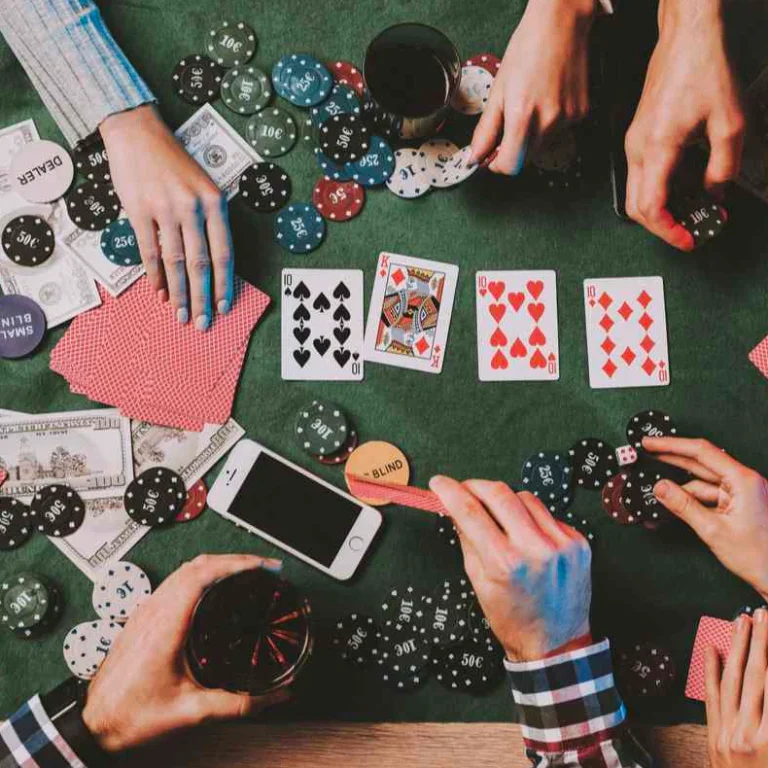
Gambling addiction has quietly become one of Pakistan’s most pressing yet overlooked social issues. While gambling in its traditional form is illegal in Pakistan under the Prevention of Gambling Act, 1977, its prevalence continues to rise, driven by the growing popularity of sports betting, especially on cricket, and the widespread availability of online gambling platforms. As gambling becomes more accessible and entrenched in society, the question arises: Is Pakistan ready to confront its growing gambling addiction problem?
The Scope of Gambling in Pakistan
Despite being outlawed, gambling thrives in Pakistan through illegal betting rings, underground casinos, and an expanding online gambling market. The global popularity of cricket as the national sport only exacerbates the situation, with millions of Pakistanis placing bets on both local and international matches. Add to that the increasing ease of access to international gambling websites, which often operate outside Pakistan’s jurisdiction, and it’s clear that the problem is more widespread than authorities care to admit.
For many, gambling begins as a form of casual entertainment—placing small bets on cricket matches or engaging in friendly games of cards. However, the lure of quick financial gains quickly turns into a compulsive behavior. As gambling addiction takes root, individuals often find themselves spiraling into debt, mental health problems, and relationship breakdowns. Despite these consequences, gambling addiction remains stigmatized, making it hard for individuals to seek help and for society to address the issue openly.
The Psychological and Social Toll
Gambling addiction takes a significant psychological toll on individuals, often leading to anxiety, depression, and stress. The desire to recoup losses through further gambling often results in even greater financial ruin. As the addiction deepens, many gamblers resort to borrowing money from family members or friends, straining personal relationships. The shame and guilt associated with gambling losses further isolate those struggling with the addiction, preventing many from reaching out for help.
For families, the consequences can be devastating. The financial strain caused by gambling often leads to arguments, family disputes, and, in some cases, divorce. In a society where honor and reputation are highly valued, the stigma attached to gambling addiction only makes the issue harder to tackle. Many gamblers feel the need to keep their addiction hidden, resulting in chronic secrecy and a reluctance to seek treatment or support.
Is the Government Ready to Tackle Gambling Addiction?
While gambling addiction is clearly a rising concern, the Pakistani government has been slow to address it systematically. The current legal framework surrounding gambling, which was established decades ago, is insufficient to deal with the modern challenges posed by online gambling and illegal betting. Although the government has attempted to block gambling websites, the effectiveness of these measures is limited, as new platforms are quickly launched to replace those that are blocked.
Moreover, there is a lack of public policy specifically targeting gambling addiction. The government has not yet established dedicated rehabilitation centers or prevention programs to address the issue at a national level. Mental health services for gambling addiction are virtually nonexistent, and there are few addiction support networks available for those seeking help. The absence of public education campaigns on the dangers of gambling addiction only exacerbates the problem.
Despite these gaps, the government has begun to take tentative steps toward recognizing the issue. In recent years, there have been discussions about the potential for regulating gambling in a controlled environment to reduce the illegal market and generate revenue for public services. However, this proposal remains controversial, particularly due to Islamic objections to gambling, which is prohibited under Sharia law. As a result, balancing legal, religious, and social concerns has proven to be a difficult challenge for policymakers.
The Role of Religious and Cultural Beliefs
In Pakistan, Islamic teachings strongly influence social attitudes, and gambling is considered haram (forbidden) in Islam. Religious leaders have long condemned gambling, framing it as a sinful practice that leads to moral decay and social harm. This cultural perspective shapes the public’s response to gambling addiction, making it difficult for many to view it as a legitimate mental health issue rather than a moral failing.
However, this strong religious stance can also provide an opportunity for positive intervention. Religious institutions and leaders can play a crucial role in raising awareness about the dangers of gambling and in offering support to individuals seeking help. Islamic counseling, based on teachings about self-control and spiritual recovery, could provide an additional layer of support for those struggling with gambling addiction.
Community and Grassroots Movements
In the absence of a strong governmental response, community organizations and grassroots movements are increasingly taking the lead in raising awareness about gambling addiction. Some NGOs are working to educate people about the psychological dangers of gambling and providing support for families affected by addiction. Additionally, local support groups and peer counseling have started to emerge, helping individuals navigate the emotional and financial turmoil of gambling addiction.
However, these efforts remain small-scale and often lack the funding and infrastructure to make a significant impact. Without government backing, such initiatives can only reach a limited audience and may struggle to address the full extent of the problem.
The Path Forward
As gambling addiction continues to grow in Pakistan, it is clear that a more comprehensive approach is needed. The government must prioritize gambling addiction as a public health issue, investing in prevention programs, treatment facilities, and public awareness campaigns. Creating a regulatory framework for gambling could reduce the influence of illegal operators while generating revenue to fund addiction treatment and education efforts.
Simultaneously, religious leaders and community organizations can play a key role in challenging the stigma around gambling addiction and providing support to those in need. Mental health professionals must also be brought into the conversation, ensuring that gambling addiction is addressed alongside other forms of addiction and mental health issues.
While Pakistan is not yet fully equipped to confront its gambling addiction problem, it is not too late to start. By acknowledging the issue, creating appropriate interventions, and fostering collaboration between the government, religious leaders, and civil society, Pakistan can begin to take meaningful steps toward combating the harmful effects of gambling addiction. The question is not whether Pakistan is ready, but whether it is willing to act before the problem becomes even more entrenched.
Experience Thrills and Big Rewards at KKClub Casino – Pakistan’s Premier Gaming Hub!



